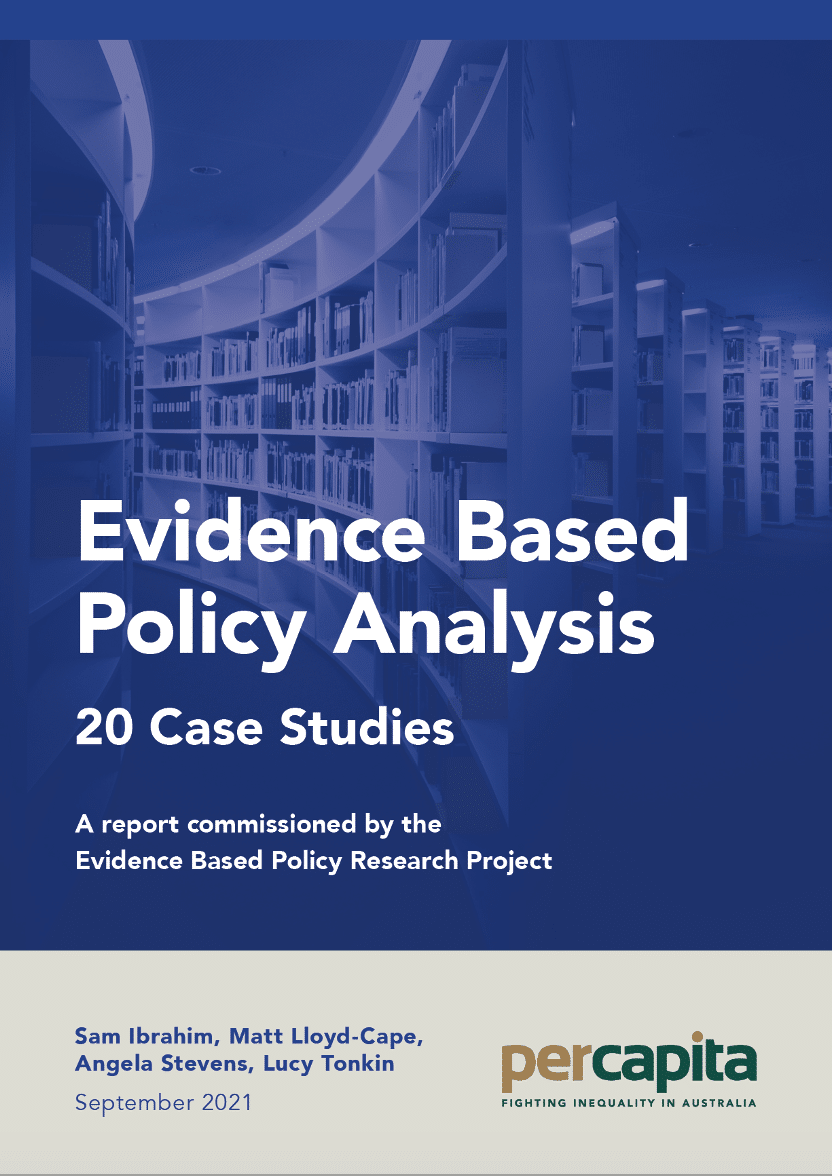The Evidence Based Policy project highlights how policy design frequently fails to incorporate the best available evidence, or policy development practices. Far too often the news cycle, or narrow party politics determines what polices are enacted by state and federal politicians. Recent examples, from the ‘sports rorts’ scandal, to federal bushfire recovery spending, to car park funding allocations indicate a growing and worrying trend for policies to be developed with significant political bias, motivated by electoral party politics rather than optimal policy outcomes.
This can result in failed policy implementation and poor results for citizens, politicians, and society at large, especially when it undermines public confidence in policymaking.
The Institute of Public Administration Australia (IPAA) 2012 discussion paper Public Policy Drift argued that governments must replace “policy on the run” with a “business case approach” to address the “sense of crisis in the policymaking system”. This approach would involve designing policies based on evidence, consultation, analysis, and debate. The paper outlined a business case approach based on Professor Kenneth Wiltshire’s Ten Criteria for a Public Policy Business Case and analysed 18 federal policies against that criteria, finding that only eight satisfied these standards for policymaking.
In 2018, the newDemocracy Foundation commissioned two think tanks with different ideological leanings – Per Capita and the Institute of Public Affairs – to repeat the analysis, ranking 20 recent high-profile policies (eight federal, and four from each of New South Wales, Victoria, and Queensland) against the Wiltshire criteria.
In 18 of the 20 cases, the two think tanks were able to find at least 80% agreement in scoring, revealing the importance of taking a rigorous and consultative approach to policy development and implementation at all levels of government. The project demonstrated that, while no policy analysis can be completely free of ideological perspective, there are several elements that should be common to all well-conceived and implemented policies if they are to efficiently and effectively serve the public interest.
In 2019 the project was re-commissioned, with updates to the methodology to address some of the previous year’s inconsistencies. We prioritised policy decisions that had been legislated and introduced a questionnaire to accompany the Wiltshire criteria. Once again, the project demonstrated that two ideologically opposed think tanks could come to agreement on processes that represented good – and bad – policymaking. It also included some reflections on election policymaking, on the state/federal comparison, and on consensus versus controversy.
In 2020, in light of the extraordinary policy-making times, the project’s Steering Committee consulted with Professor Kenneth Wiltshire to revisit the methodology.
For 2021, with emergency legislation somewhat less necessary, the methodology has reverted to the 2019 criteria.

